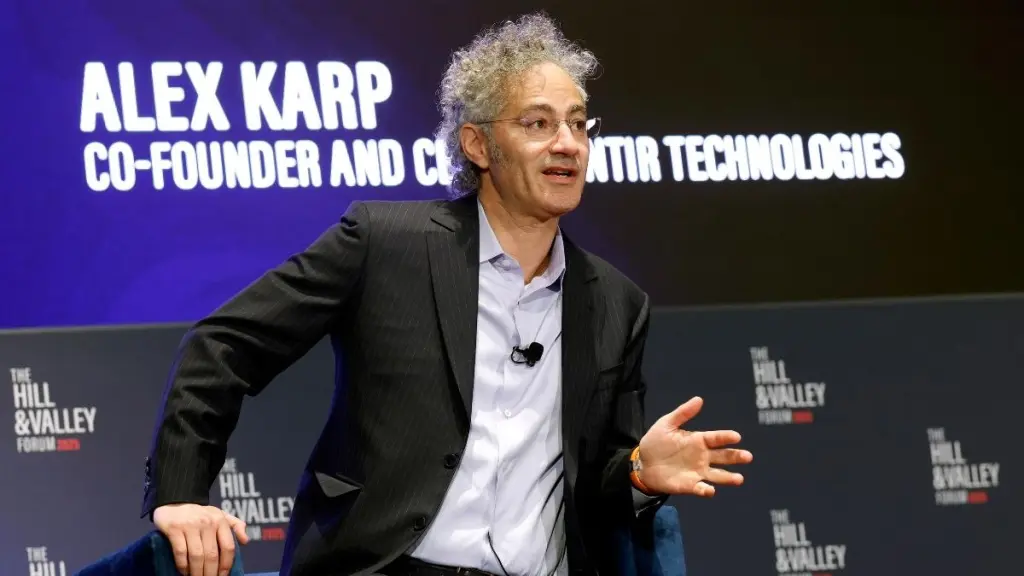Alex Karp’s net worth as of 2025 has recently become a topic of interest among netizens, who are eager to learn about his fortune and how much money he makes. A prominent force in the business world, the 57-year-old launched his career via startup and stock investments before founding a renowned software firm.
Born in New York City, Karp originally aspired to become a social theorist. He later secured multiple degrees from several institutions. He earned a bachelor’s degree in philosophy from Haverford College, a juris doctor from Stanford Law School, and a PhD in neoclassical social theory from Goethe University.
Here is Karp’s overall net worth explained.
What is Alex Karp’s net worth in 2025?
Alex Karp has an estimated net worth of $15 billion in 2025.
Karp’s net worth in 2025 consists of earnings from his work as a businessman and investor. He is also an author and was a research associate.
He is most famous for being the co-founder and CEO of software company Palantir Technologies.
What does Alex Karp do for a living?
Alex Karp is a businessman, investor, and author. He was also a research associate.
Most recently, Karp made headlines for stating that college degrees are irrelevant at Palantir. He shared that he and the company were coming up with “a new credential independent of class and background” (via Business Insider).
Alex Karp’s earnings explained — how does he make money?
Alex Karp earns money from his work as a businessman and author. He is also an investor and has worked as a research associate.
Businessman
Karp is the CEO of Palantir Technologies, which he founded in 2003 with Peter Thiel, Stephen Cohen, and Joe Lonsdale. He has also been affiliated with other companies as a committee or board member.
- Axel Springer SE – Member of the board of directors
- BASF – Member of the board of directors (until 2020)
- Bilderberg Meeting – Steering committee member
- The Business Council – Member
- The Economist Group – Former board of directors member
He also founded Caedmon Group, a London-based money management firm. It focused on managing the money of high-net-worth individuals interested in investing with Karp.
Investor
Upon receiving an inheritance from his grandfather, Karp began investing the money in startups and stocks.
Research associate
Karp worked as a research associate at Frankfurt’s Sigmund Freud Institute.
Author
Karp and Nicholas Zamiska co-authored the book “The Technological Republic: Hard Power, Soft Belief, and the Future of the West.” The book secured the No. 1 spot on The New York Times Best Seller list.








